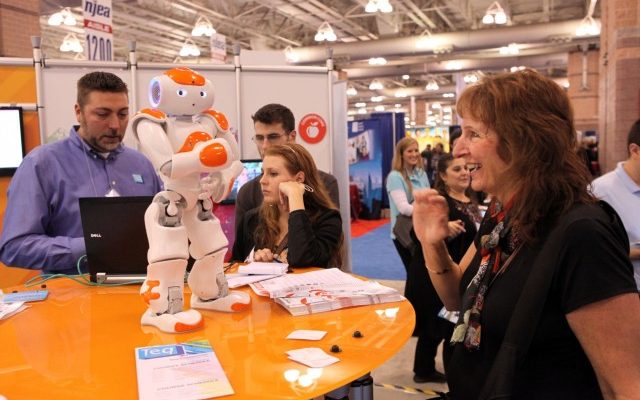Are Virtual Schools Good for Kids?

With the birth of advanced technology has come advancement in the classroom. Along with the invention of the television came classroom films and typewriters were replaced with computers. This natural progression has allowed for unique opportunities of learning that were not available before advanced technology. As each student is different, their way of learning is distinct and with technology, teachers are now better able to provide multiple layers of education. While teaching about the ocean, a teacher may have a slideshow, a film, and a computer research or graphic design assignment. Unique ways of teaching allow the teacher to target the student’s strengths and engage them on a personal level.
Some students learn better if they work with their hands while other students learn better by reading. The invention of the computer has now allowed students to learn through technology and students are engaged like never before. This different way of learning may be incredibly beneficial to some people who thrive on technology. This relatively new invention has given millions of students the opportunity to have access to seemingly endless information. This incredible opportunity has opened up doors that were previously closed or otherwise inaccessible.
One of these doors that were opened by advanced technology is the virtual classroom. While most teachers incorporate technology in the lessons, a virtual classroom takes place of the actual classroom. Virtual schools are used instead of a traditional school, and it is through those schools that students are taught. With a computer, a student can access lessons, homework, tests, and information. These virtual schools give access to an education when students may not otherwise have access.
When considering a virtual school, a parent will wonder if virtual schools are in fact, good for kids. It seems a bit contradictory to monitor screen time but also place your child in front of a computer screen for their education. Also, how will a child get their work done without a teacher present? Is it really possible to get an education with a computer? Are virtual schools good for kids? These questions and observations may come up when considering a virtual school and some research has been done.
Connections Academy, a national online public school, states that there were 315,000 students in full-time online school in the 2013-2014 school year. Various studies have been done on online schools to test their performance level. One study done in Arkansas measured the proficiency levels of students grade 5 through 8. The online students of the study increased their math skills by ten percentile points and literacy skills by four percentile points as compared to the traditional students who gained 1.6 percentile points in math and lost 1.2 percentile points in literacy.
There was also a study done that came to the conclusion that virtual schools are pointless as the subjects scored as if they had missed school for a whole year. However, the company behind this research is known to receive money from organizations that support charter schools which may impact the study, so this information could be inaccurate. Another study done in February of 2017 found that lower performing students, the students most attracted to a virtual school, lagged further behind their peers and would have fared better had they been enrolled in a traditional school. The study also found that high performing students suffered a loss in their education after enrolling in an online school.
The option of having a virtual school meets the need for a different educational environment whether for flexibility or security. An online education offers different opportunities that students have not had before however, the lingering question is if this new style of education is actually good for kids. With so much research pointing in both directions, it ‘s hard to tell if these schools are productive or not. This inconclusive evidence does nothing but make the answer confusing. Virtual schools appear to give a good education to those that wouldn’t otherwise have it however some studies prove the education quality is poor while there are also studies that show the quality is good. This unclear performance level may make parents reconsider enrolling their child in a virtual school and instead choose a traditional education.
In time, more studies will be done however considering that it is a hot button political topic, it is hard to tell which study is honest and which one is propaganda. Virtual schools have many advantages that traditional schools do not offer and they seem to provide an education level of equal or better value than a traditional school. The mediocre evidence makes it difficult to decipher their performance levels, and it is likely that this information will cause parents to shy away from virtual schools because they do not want to risk their child’s education.





